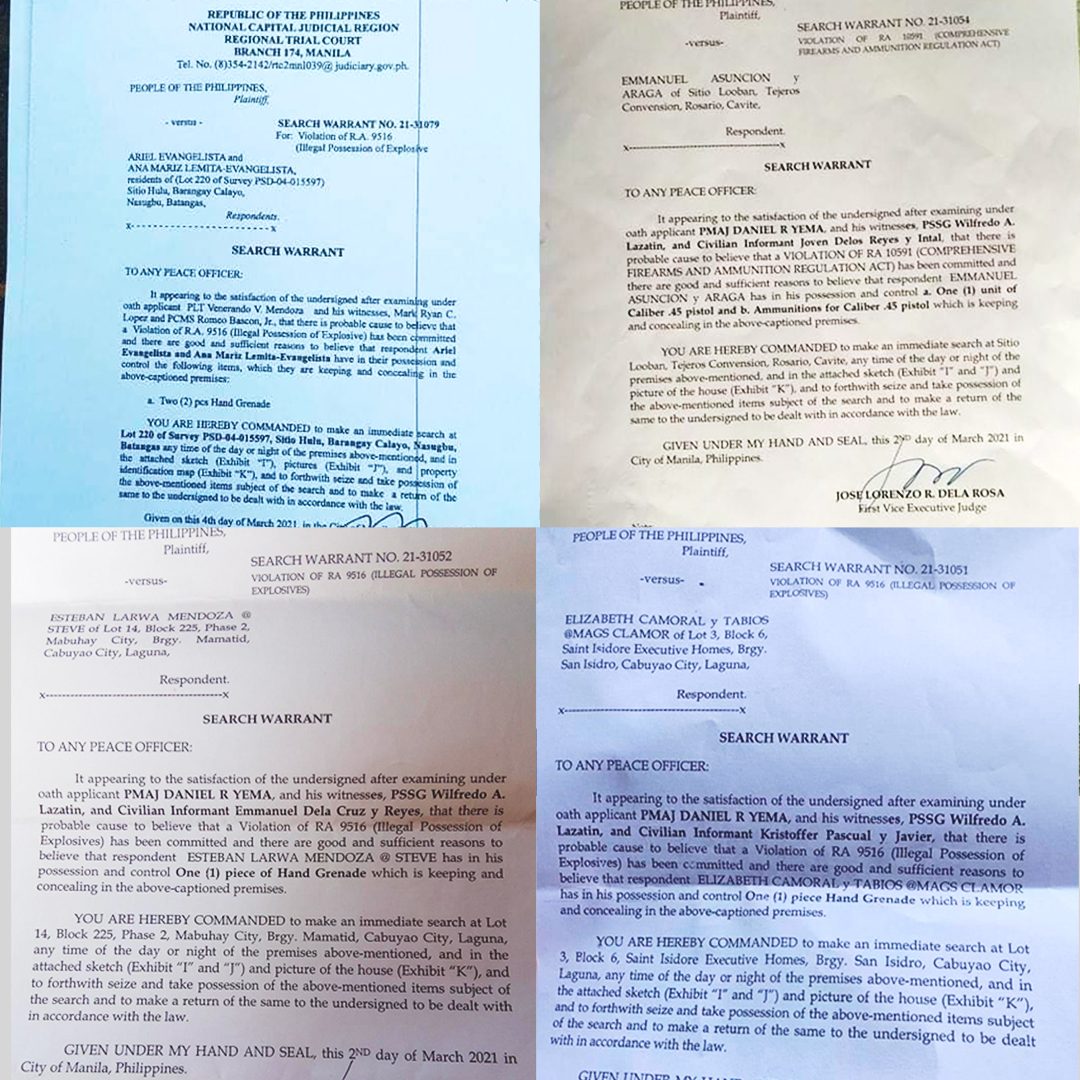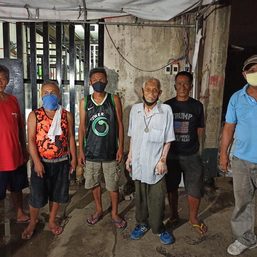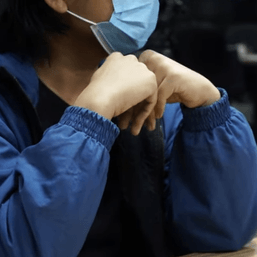SUMMARY
This is AI generated summarization, which may have errors. For context, always refer to the full article.

The Supreme Court, through the Office of the Court Administrator (OCA), distanced trial court judges from the outcome of the “Bloody Sunday” operations in Calabarzon that were carried out through their search warrants.
“The issuance of the search warrants by the judges and their service or implementation by the law enforcers are two different acts. The issuance of search warrants is judicial in nature,” said Court Administrator Midas Marquez in a report sent to Chief Justice Diosdado Peralta dated March 12, but which was obtained by media only on Tuesday, March 16.
Cops serving the search warrant had accused the activists of being armed and resisting arrest (nanlaban), a claim disputed by their families and human rights groups. This led to the deaths of 9 activists during the operations.
Marquez, who oversees all trial courts, said that an action at this point on the issuances would be premature. Human rights lawyers have called on the Supreme Court to review rules on search warrants, or even conduct an audit of the courts which issued the search warrants.
“Judicial remedies are available to those aggrieved by their issuance. Any action at this time on their issuance may preempt any judicial recourse any party may take,” said Marquez.
Human rights lawyers have also asked the Court to clarify rules when a lower court judge eventually reviews the search warrant issued by a co-equal judge. In cases of activists, there have been different standards applied by lower court judges.
42 search warrants issued in one go
According to Marquez’s report, policemen applied for 63 search warrants before the Manila Regional Trial Court (RTC) on March 1 for different areas in Calabarzon.
A Supreme Court rule, which human rights lawyers want reviewed, allows executive judges of Manila and Quezon City to issue search warrants outside their jurisdictions.
Because of the numerous applications for search warrants, the executive judge of Manila distributed the task: he heard 17 applications, while the rest of the applications were equally distributed among his 3 vice executive judges.
“The 63 applications were heard by the 4 Judges in two days. Of the 63 applications, 42 were granted, 19 were denied, while 2 were withdrawn,” Marquez said in his report.
At least 14 of the 42 warrants were served during the operations that led to the 9 activists’ death and the arrest of 6 others.
That judges can issue a set of search warrants in one go sounded the alarm for the National Union of Peoples’ Lawyers (NUPL), which questioned how thorough a judge can scrutinize the applications if several are heard at the same time.
“Isn’t the sheer number of applications all in one swoop curious enough?” said NUPL president Edre Olalia.
Associate Justice Alexander Gesmundo, who is applying to be chief justice, said that under the rules, before judges issue a search warrant, they must not base their decision solely on affidavits of witnesses, but “must conduct a personal searching inquiry.”
Associate Justice Ramon Paul Hernando, who’s also applying to be chief justice, shared Marquez’s position that “judges should not be blamed.”
“If he really issued it on the basis of what our rules required, I think the judge should not be blamed for that. It’s a different thing when it comes to the implementation of the search warrant,” Hernando said during his public interview before the Judicial and Bar Council (JBC).
The Supreme Court on Tuesday considered the proposal to require cops to wear body cameras when serving warrants – an action it made on its own, without waiting for a petition– to address the growing concerns. – Rappler.com
Add a comment
How does this make you feel?










There are no comments yet. Add your comment to start the conversation.